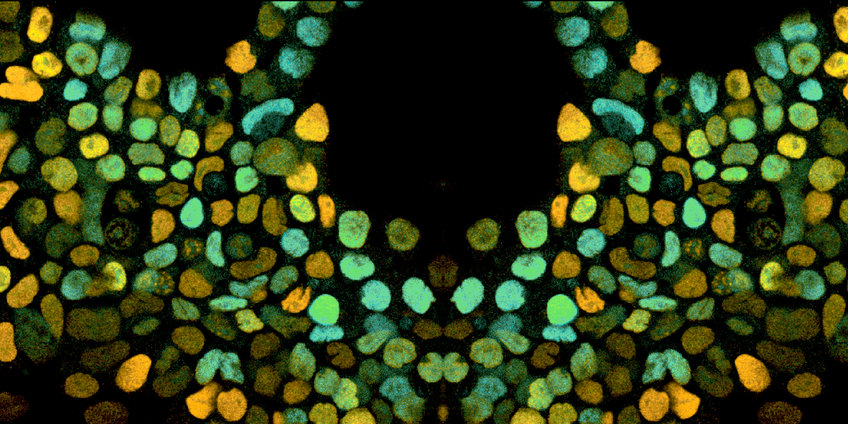
Research funds for measuring the speed of life
The team of Christian Schröter receives research funding from the Volkswagen Foundation to study the time component of life cycles using stem cells.
The life cycle - a central element of biology
All multicellular organisms undergo characteristic life cycles of development, maturation and ageing. The duration of the whole life cycle and each of its phases differs substantially between species. In humans, about 9 months elapse between conception and birth, and it takes another 11 - 16 years to reach sexual maturity and full adult size. Small mammals like mice in contrast complete their whole life cycle in just a few weeks. To find out which processes are hidden behind this phenomenon, Christian Schröter and his team now want to investigate the control of developmental timescales that are at the beginning of the life cycle.
It is known that the time span of development is largely determined by the speed with which cells with specific functions, such as muscle or neurons, develop from the less specialized cells of the early embryo. This process of cell specialization is controlled by the activation or suppression of certain genes. How fast genes are switched on or off depends on regulatory networks and biochemical reactions within the cell, as well as on influences from the outside, such as cell density, metabolism or pharmacological substances.
Measuring the speed of cell differentiation
To determine the role of different factors for the speed of cell specialization, the teams of Christian Schröter and his colleagues Dr. Micha Drukker and Dr. Carsten Marr from the Helmholtz Centre in Munich, will study induced pluripotent stem cells from different mammalian species with vastly different life spans. Pluripotent stem cells resemble cells of the early embryo and can be maintained and expanded infinitely in the culture dish. These cells have the remarkable potential to specialize into any cell type of the adult body, with a speed that mimics the speed of cell specialization in the embryo. This gives the researchers a unique tool to quantify the developmental speed of different organisms at the cellular level, and will enable them to identify and ultimately manipulate its genetic and biochemical basis. "By joining our resources and expertise in the field of stem cell research, video microscopy, the determination of gene activity by single cell transcriptomics and the analysis of biological data by computational analysis and modelling approaches, we hope to better understand the origin of the time component of the life cycle," says Christian Schröter, initiator of the project. In the long run, the results of the project may also be relevant for the application of pluripotent stem cells in medicine.
JJ/PH
Background on the Volkswagen Foundation's research initiative
With its initiative the Volkswagen Foundation aims to support unique and excellent projects at the interface between the natural and life sciences. Funded projects should help to better understand the fundamental principles of life and thus open up intriguing and novel perspectives on life to complement the philosophical view.
Since the initiative was set up in 2015, 29 applications with a total of around 38.4 million euros in funding have now been approved after 3 deadlines. In June 2019, the Board of Trustees of the Volkswagen Foundation approved 8 projects from 95 applications with a total funding amount of around 11 million euros.